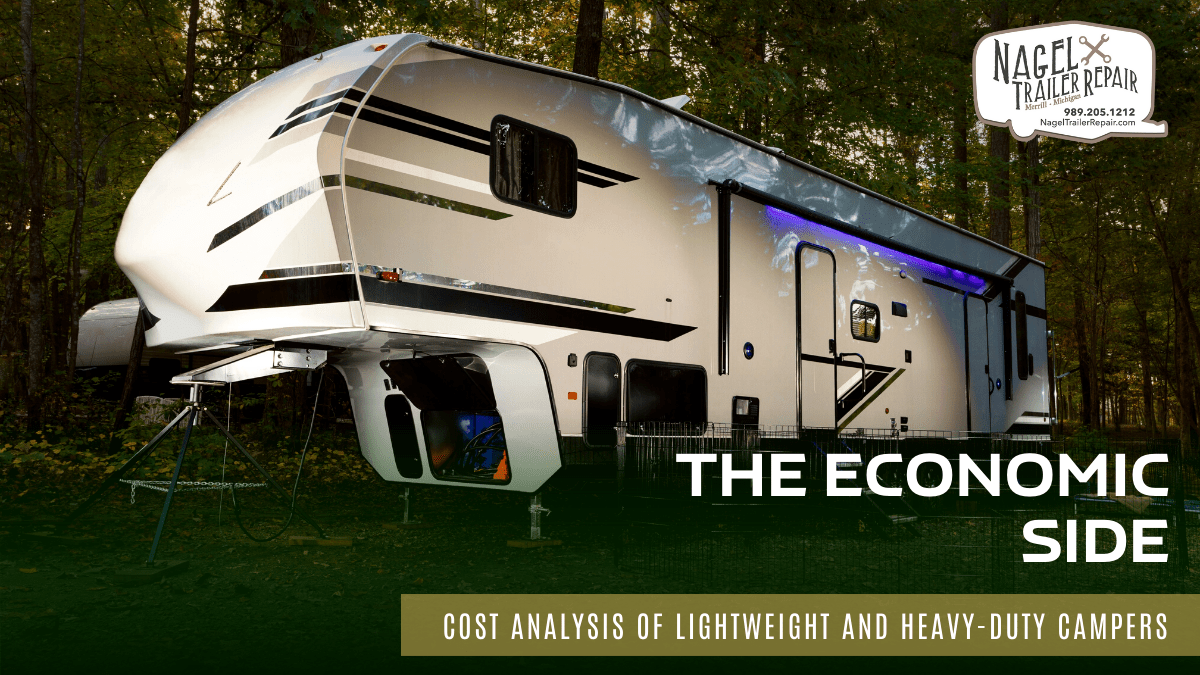When it comes to exploring the great outdoors, the choice of camper can significantly impact your budget and overall camping experience. Campers come in various shapes and sizes, with two primary categories dominating the market: lightweight and heavy-duty. Understanding the economic implications of choosing between these two types can help campers make informed decisions that align with their budget and travel needs.
Lightweight Campers: Finding Balance in Cost Efficiency
Lightweight campers, often constructed with lighter materials like fiberglass or aluminum, offer several economic advantages. Their reduced weight contributes to better fuel efficiency, resulting in lower transportation costs. Moreover, the lighter weight allows for easier towing, enabling the use of smaller vehicles that consume less fuel compared to heavy-duty campers, which typically require larger, more fuel-thirsty trucks or SUVs for towing.
Additionally, the initial cost of purchasing a lightweight camper tends to be lower than that of heavy-duty counterparts. These campers often come with a lower price tag due to their simpler construction and reduced material expenses. Maintenance costs also lean towards the economical side, as lightweight campers usually require less upkeep and repairs owing to their uncomplicated designs.
The Trade-Off: Heavy-Duty Campers and Long-Term Investment
On the other end of the spectrum, heavy-duty campers boast durability and robustness, albeit at a higher initial cost. Constructed with sturdier materials like steel or high-grade aluminum, these campers are built to withstand rugged terrains and harsh weather conditions. While the upfront investment might be substantial, heavy-duty campers often provide a longer lifespan, potentially proving to be a more sound long-term investment.
Moreover, these campers offer more space and amenities, providing a comfortable camping experience akin to a home away from home. However, the increased size and weight demand more powerful vehicles for towing, leading to higher fuel consumption and maintenance expenses. The larger footprint also means pricier storage solutions when not in use, contributing to long-term ownership costs.
Cost Analysis: Factors Influencing Your Decision
Several factors should influence your decision when weighing the economic aspects of lightweight versus heavy-duty campers:
Frequency of Use: If you plan to use the camper frequently, a heavier investment in a heavy-duty camper might prove worthwhile due to its durability and potential long-term cost efficiency.
Travel Distance: For frequent long-distance travelers, the fuel efficiency of a lightweight camper might translate to significant cost savings over time.
Budget Considerations: Assess your budget constraints carefully, considering not just the initial cost but also long-term expenses such as fuel, maintenance, and storage.
Amenities and Comfort: Your camping style and preferences matter. Heavy-duty campers often offer more luxurious amenities, providing added comfort but at an increased cost.
Conclusion:
In the realm of RV camper parts in Michigan, the economic balance between lightweight and heavy-duty campers becomes crucial. Choosing between these options hinges on cost considerations, usage frequency, and long-term savings. Lightweight campers shine in affordability and fuel efficiency, ideal for frequent travelers covering extensive distances. On the other hand, heavy-duty campers offer durability and luxury amenities but come with higher initial investments and operational expenses. Assessing your camping habits, travel needs, and budget constraints is vital. Ultimately, the right camper choice aligns with your economic priorities and camping aspirations in Michigan’s RV camper parts landscape.

